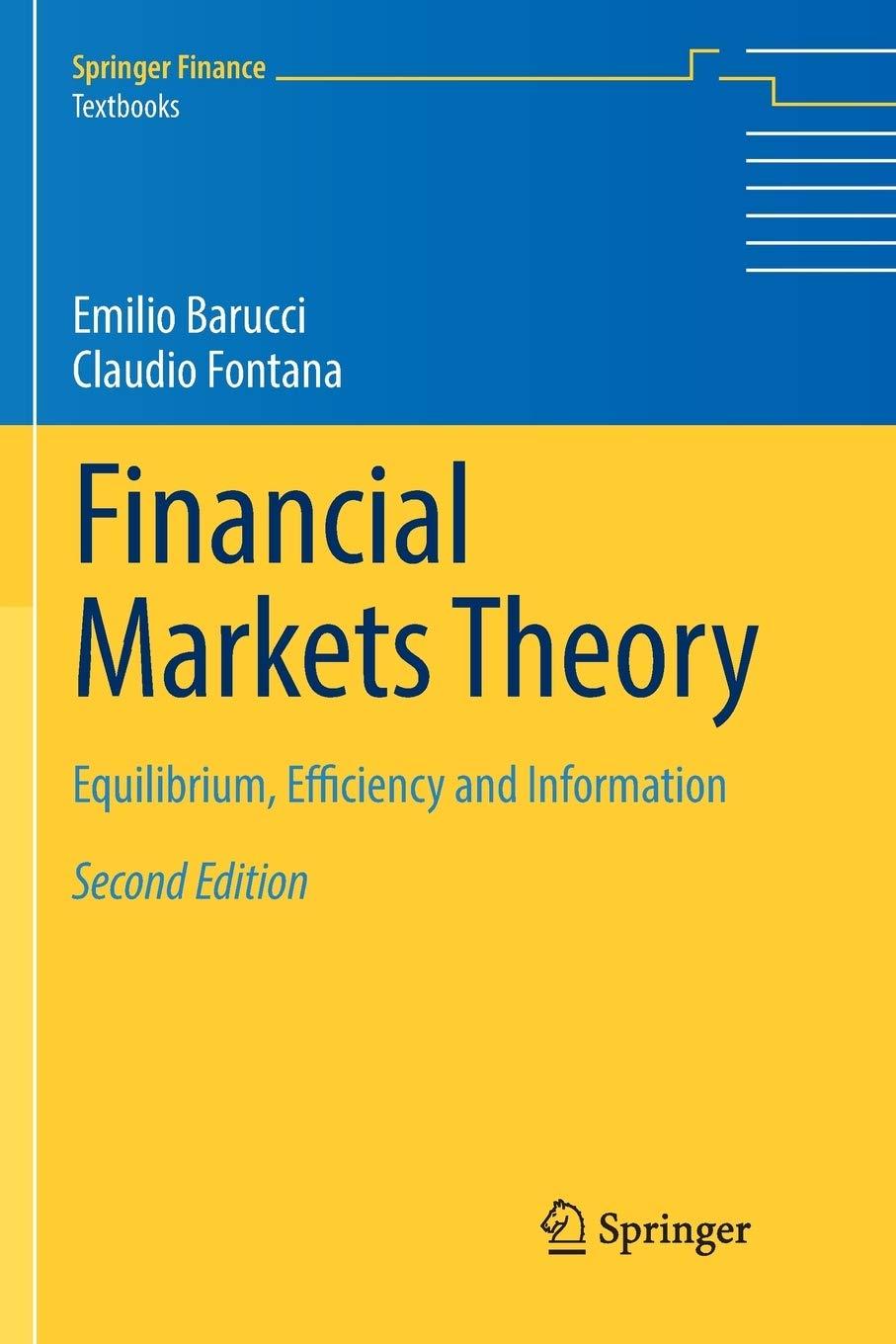Let (z, z^{prime} in mathbb{R}^{N}) be two portfolios with riskless payoffs, i.e., [sum_{n=1}^{N} d_{s n} z_{n}=c quad
Question:
Let \(z, z^{\prime} \in \mathbb{R}^{N}\) be two portfolios with riskless payoffs, i.e.,
\[\sum_{n=1}^{N} d_{s n} z_{n}=c \quad \text { and } \quad \sum_{n=1}^{N} d_{s n} z_{n}^{\prime}=c^{\prime}\]
for some \(c, c^{\prime}>0\), for all \(s=, 1 \ldots, S\). Show that, if there are no arbitrage opportunities, then \(\frac{c}{p^{\top} z}=\frac{c^{\prime}}{p^{\top} z^{\prime}}\) (i.e., the two portfolios \(z\) and \(z^{\prime}\) have the same rate of return).
Fantastic news! We've Found the answer you've been seeking!
Step by Step Answer:
Related Book For 

Financial Markets Theory Equilibrium Efficiency And Information
ISBN: 9781447174042
2nd Edition
Authors: Emilio Barucci, Claudio Fontana
Question Posted:





